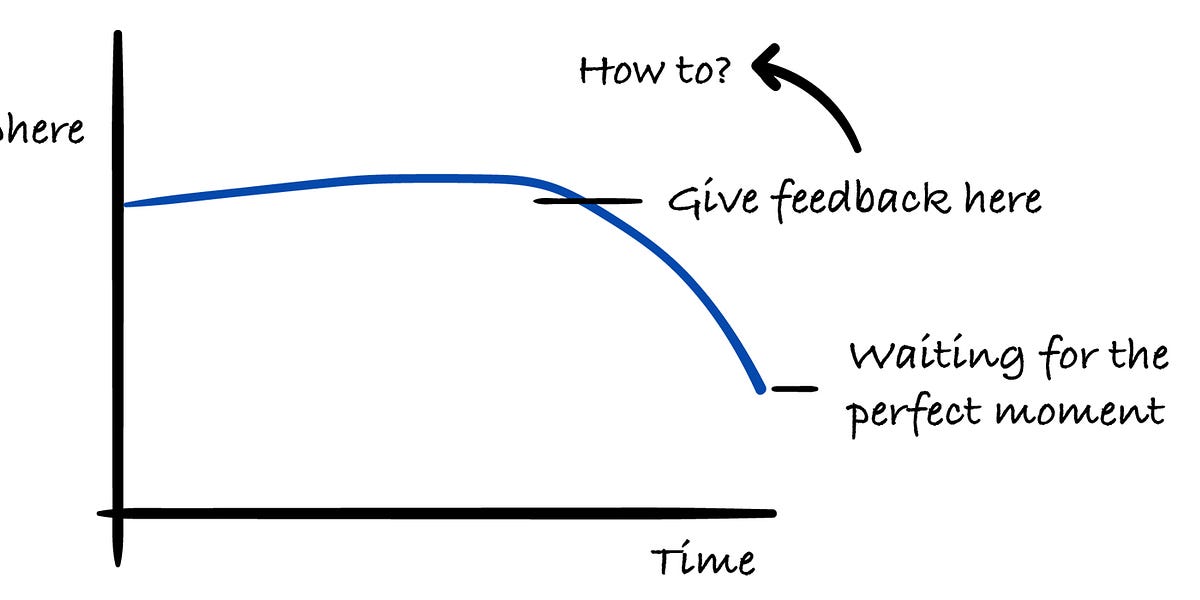
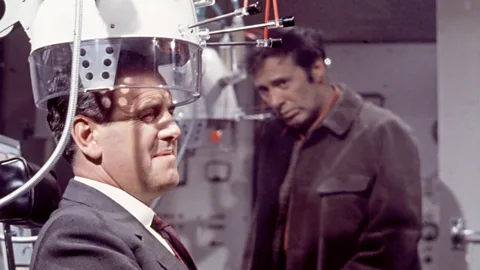 BFI/ BBC
BFI/ BBC
(Credit: BFI/ BBC)
Sixty years ago, anthology series Out of the Unknown premiered on the BBC. It served up serious, one-off sci-fi dramas exploring our relationship with technology, among other things.
In a crowded TV landscape, few shows have carved out as distinct a niche as Black Mirror, Netflix's anthology sci-fi series comprised of individual, standalone dramas, all dealing with the dark side of modernity and technological progress. But while it may be strikingly different from anything else out there now, it's certainly not unique within TV history. In fact, you can see its roots all the way back in a classic British sci-fi show celebrating its 60th anniversary this month.
Airing on the BBC between 1965 and 1971, and re-released on DVD in 2014 by the British Film Institute, Out of the Unknown was a cultural outlier. While there were various sci-fi shows on British and US TV at the time, they mostly offered escapism, such as Doctor Who (1963-89) and Gerry and Sylvia Anderson's various serials like Stingray (1964-65) and Thunderbirds (1965). Out of the Unknown's aim was more elevated: it set out to tell sci-fi tales that explored serious, adult subjects such as war, politics and technology, and mixed original scripts with adaptations of stories by celebrated authors like John Wyndham, Ray Bradbury and JG Ballard. Like the best sci-fi, it also managed to depict imagined futures while really commenting on the fears and tensions facing the world at the time of its production.

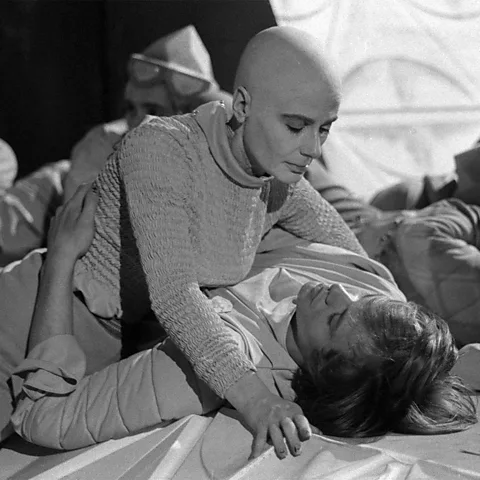 BFI/ BBC
BFI/ BBC
In this respect and others, the parallels with Black Mirror are clear although there is an irony to this comparison. "I have to confess I haven't seen it!" Black Mirror creator Charlie Brooker tells the BBC. "The inspiration for Black Mirror really came from Tales of the Unexpected, The Twilight Zone, and lots of slightly odd BBC single dramas like [Nigel Kneale's] The Stone Tape and The Year of the Sex Olympics. I'm definitely riffing on work directly connected to [Out of the Unknown], yet I haven't seen it. It's interesting!"
Out of the Unknown was the idea of pioneering producer, Irene Shubik. Initially working as story editor at the now defunct UK broadcaster ABC television on the show Armchair Theatre, her enthusiasm for sci-fi eventually led to the production of 13 episodes of the series Out of This World (1962) for UK broadcaster ITV. Later, Shubik was story editor on the BBC anthology series Story Parade (1964-65) which was a series of standalone adaptations of modern novels, and which tellingly dramatised Isaac Asimov's The Caves of Steel. The success of both ventures convinced the BBC Head of Drama Sydney Newman, who had worked with Shubik at ABC, that she should devise an anthology show dedicated to intellectual sci-fi.
I think that science-fiction is a way of talking about now and the world we live in today, but disguised as something fun… You can bend the rules of your reality into a funhouse mirror version of the issue you're talking about – Charlie Brooker
Television historian Jon Dear explains the initial rationale behind the series. "Out of the Unknown was really the first time that sci-fi was presented as serious and intelligent adult drama," he tells the BBC. "Today, series like Alien: Earth and Andor are unremarkable as being made for adults, and obviously have their origins in cinema, but this series was the first time many people would have watched speculative fiction, having found things like Doctor Who too juvenile."
The series began broadcasting in 1965, with its first story, John Wyndham's No Place Like Earth, going out on 4 October. Shubik produced the first two series, comprised of 26 episodes, before leaving to pursue other work, handing over to producer Alan Bromly, who took over for a further two series that ran from 1969 to 1971.
Out of the Unknown boasted a wealth of talent behind and in front of the camera. As well as the great writers whose work was adapted, each episode was populated by the very best of British character actors such as former Doctor Who Patrick Troughton, future leading man David Hemmings and noted faces from British theatre including Yvonne Mitchell, Sylvia Coleridge and Lynn Farleigh, to name but a few. Famous faces even appeared in production roles – future Alien and Blade Runner director Ridley Scott, for example, worked as a production designer on one of the series' most powerful episodes, an adaptation of John Brunner's Some Lapse of Time.

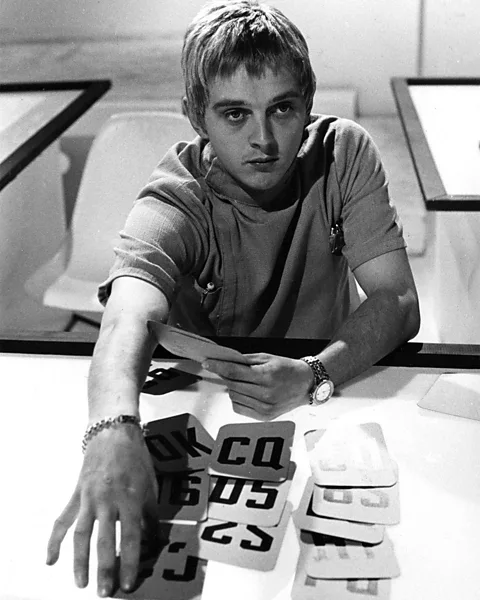 BFI/ BBC
BFI/ BBC
The series shifted the whole conception of TV sci-fi, showing how it could address complex themes. This was apparent from its very first episode, an adaptation of John Wyndham's No Place Like Earth. Following a wanderer who leaves behind his lonely existence on Mars to try life on Venus, only to find its society is founded on slave labour, it was a not so subtle allegory about colonialism.
"Good science fiction is a way of saying something you can't say in straightforward terms", wrote Shubik in her 1975 book Play for Today: The Evolution of Television Drama. Brooker affirms this sentiment in regards to his own series. "I think that science-fiction is a way of talking about now and the world we live in today, but disguised as something fun. You can sneak stuff through, like chopping up vegetables to hide in your child's meals. You can bend the rules of your reality into a funhouse mirror version of the issue you're talking about."
'An unnerving glimpse into our present'
With Out of the Unknown produced mere years after the Berlin Crisis of 1961, when tensions between the Soviet Union and the West came to a head, resulting in the construction of the Berlin Wall, it's unsurprising that the programme tapped particularly into paranoia over the Cold War. Both its second and third episodes, Alan Nourse's The Counterfeit Man and David Campton's Stranger in the Family, tackle the fear of infiltration by an enemy in disguise. Equally, the threat of nuclear war haunts the series. In Brunner's Some Lapse of Time, a doctor treating an unusual man, assumed to be a homeless drunk, is disturbed to slowly realise that the patient may have travelled back from a future ravaged by a nuclear holocaust partly caused by a politician who is also staying in the hospital. Meanwhile an adaptation of Mordecai Roshwald's novel Level 7 by JB Priestley follows an identity-erased soldier working deep in a bunker in which the response to a nuclear attack is conducted. Humanity doesn't last long.
In one episode of Out of the Unknown, a kind of invasive, time-bending memory player is eventually unleashed, prefiguring social-media addiction
However, where Out of the Unknown really came into its own was in dealing with the effects of personal technology upon society. This is also where its fingerprints are detectable on Black Mirror. In one episode, Asimov's The Dead Past, a kind of invasive, time-bending memory player – in which any event can be called upon and watched on screen – is eventually unleashed, prefiguring social-media addiction. It inevitably creates a society glued to screens via nostalgia as well as in a constant state of surveillance. Perhaps the most astonishing episode of the whole run, The Machine Stops, based on a short story by EM Forster, equally feels like an unnerving glimpse into our present. The drama follows a society that lives almost entirely closed off from one another except for communication via screens within a vast machine. The story, and in particular this adaptation by Clive Donner and Kenneth Cavander, feels like a perfect prophesy of the internet age.
More like this:
• The sci-fi show that terrified Britain
• How The Social Network predicted the future of tech
• 11 of the best TV shows to watch in October
The boon of the anthology format was that it allowed Out of the Unknown to tackle a whole host of fascinating issues in just the length they needed without labouring them. Brooker also finds similar purchase in such one-off stories. "You can explore ideas that wouldn't sustain ten seasons of something. It would collapse under the weight of its own logic. You can have a highly contrived story and you don’t need some complex lore to adhere to."

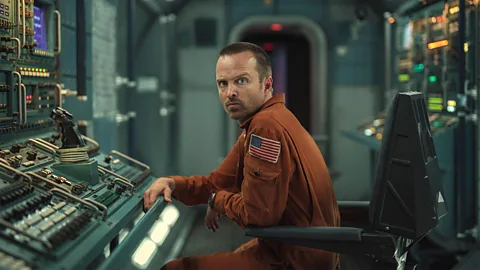 Netflix
Netflix
Dear says that, from an audience perspective, the main strength of the anthology [format] "is the variety. New situations and new ideas each time. If you don't like this one, it's still worth coming back next episode." What's interesting is that, Black Mirror aside, there aren't many anthology series commissioned today – something Brooker argues is down to industrial as much as creative factors. "It's a disadvantage in that you're starting from scratch each time," he says. "That makes life difficult in many ways as you don't have any economy of scale." (Although with the UK broadcaster er Channel 5 recently announcing it is reviving the BBC's famed anthology series Play for Today – which produced classic one-off dramas like Mike Leigh's Abigail's Party – perhaps there are brighter days ahead for the format).
But 60 years apart, both Black Mirror and Out of the Unknown have had an important cultural impact – in trying to imagine the society we are yet to become, they have simultaneously commented on the present day with uncomfortable and unflinching gusto. The future, they emphasise so masterfully, has always been now.
--
If you liked this story, sign up for The Essential List newsletter – a handpicked selection of features, videos and can't-miss news, delivered to your inbox twice a week.
For more Culture stories from the BBC, follow us on Facebook and Instagram.
.png)


